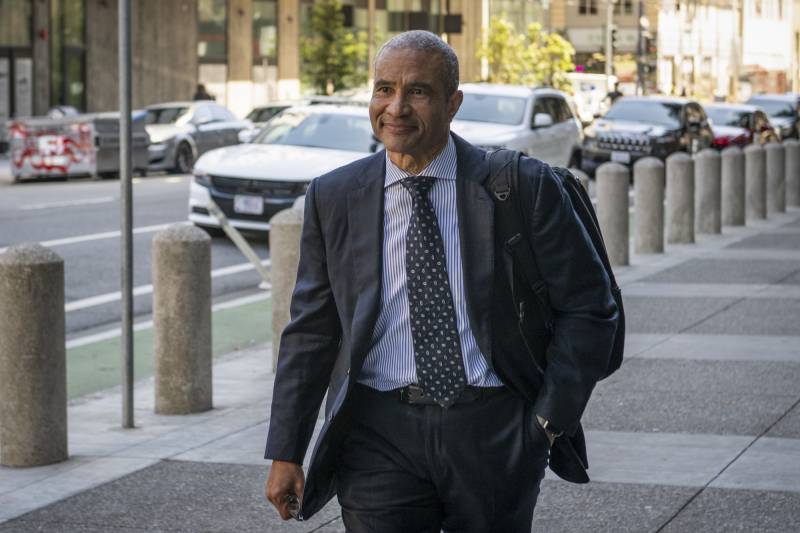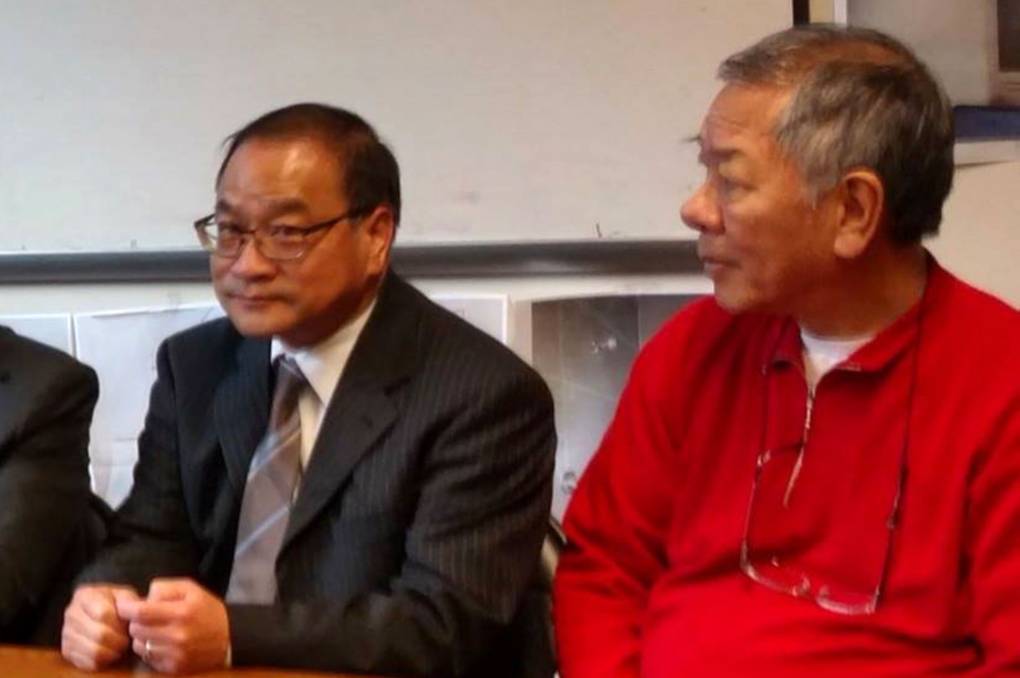Update, Monday, March 18, 2024:
Harlan Kelly, the former chief of the San Francisco Public Utilities Commission, was sentenced to four years in prison on Monday, March 18, and ordered to pay a $10,000 fine after being found guilty last year of various federal fraud and conspiracy crimes.
Kelly “betrayed the public trust and made a mockery of his oath to serve the community in his high public office,” U.S. District Judge Richard Seeborg said in court Monday.
Although federal prosecutors sought a 6 1/2 year prison sentence, Seeborg said Kelly had done enough for the community — as evidenced by the many letters of support sent on his behalf — to warrant a more lenient punishment.
His sentencing is the latest development in the FBI’s expansive, six-year investigation into city government corruption that has now ensnared more than a dozen individuals and two corporations.
Kelly is expected to begin serving his four-year prison term on June 19, and is ordered to serve three years of supervised release after that, according to the U.S. Attorney’s Office.
Original story, July 14, 2023
Yet another San Francisco city leader has been found guilty on charges related to bribery.
After less than two days of deliberation, a San Francisco jury Friday convicted the former head of a powerful agency on six of eight charges stemming from a federal investigation into corruption in the city’s government.
Harlan Kelly, the former general manager of the San Francisco Public Utilities Commission, was charged with wire fraud in 2020, charges that were later expanded to include bank fraud in late 2021.
Kelly was accused of taking bribes for years from a construction contractor, Walter Wong, who sought to win a contract to update city streetlights. The separate bank fraud charges allege Kelly conspired with real estate investor Victor Makras to make false statements to Quicken Loans to obtain a $1.3 million loan.
Chief U.S. District Judge Richard Seeborg has yet to sentence Kelly, but the former SFPUC chief faces a possible 20 to 30 years on each count against him. Wong pleaded guilty for his role in multiple alleged bribery schemes in 2021. Makras was convicted late last year.
The wide-ranging corruption scandal started in 2020 with a federal indictment of former San Francisco Public Works director Mohammed Nuru, who accepted bribes like a John Deere tractor, a $37,000 Rolex watch, and construction work on his Colusa County ranch.
But the corruption scandal didn’t stop at Nuru.


